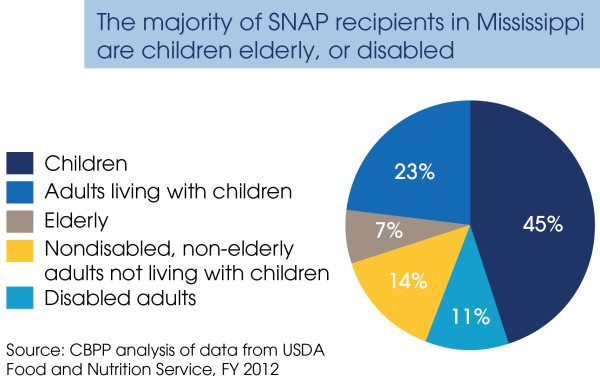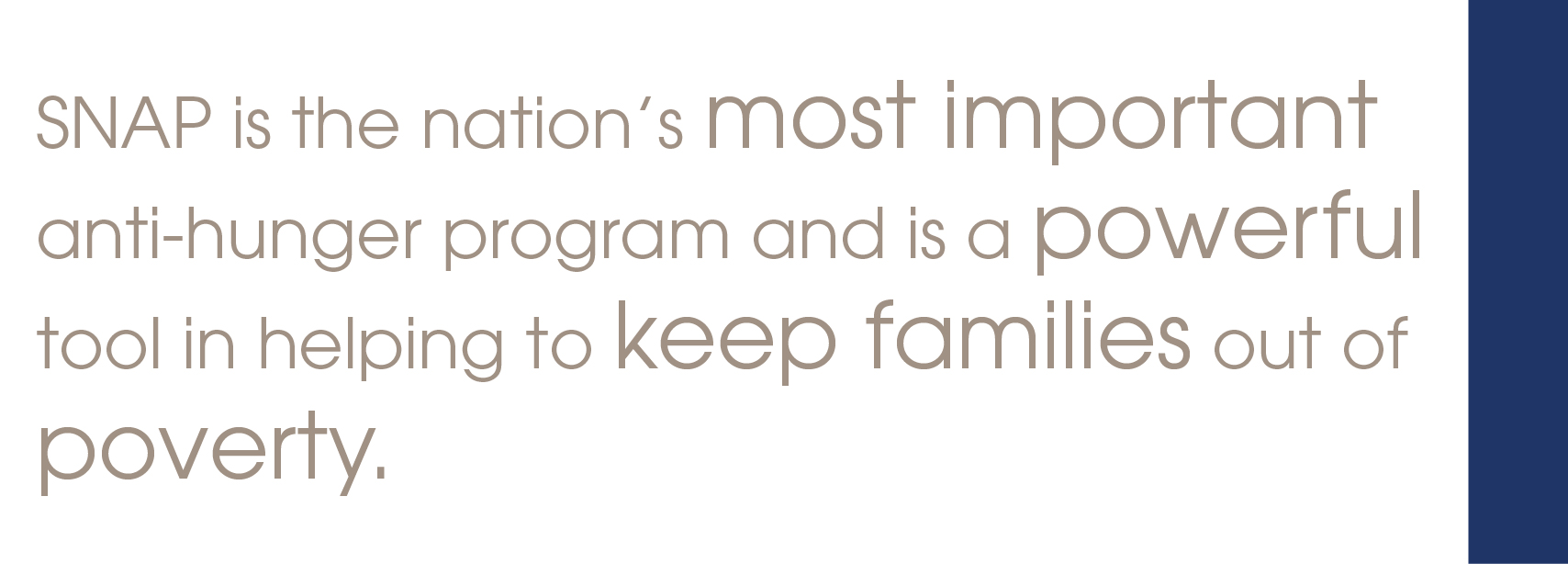Low-Income Mississippians Would Feel Effects of Deep Congressional Cuts
April 3rd, 2015
Mississippi families, many already struggling to get by, could soon find it more difficult to put food on the table. In March, congressional members voted on a budget plan intended to cut the Supplemental Nutrition Assistance Program (SNAP, formerly known as food stamps) drastically over the next decade. Now is not the time for cuts to this important anti-poverty program that keeps thousands of Mississippians from falling into poverty. Roughly 47 million Americans, including nearly 657,000 Mississippians, who rely on SNAP for basic nutritional needs would experience a large reduction in their monthly food assistance benefits or be terminated from SNAP altogether.
This will undoubtedly have harmful effects for SNAP recipients in Mississippi – the majority of which are children, working-poor parents, seniors, people with disabilities, and others struggling to make ends meet.

According to the Center on Budget and Policy Priorities, the $125 billion SNAP cut (a 34% cut to SNAP funding) over fiscal years 2021 to 2025 means that states would likely have to eliminate an average of 11 to 12 million people from SNAP (relative to SNAP enrollment without the cuts) or states would have to cut an average of almost $55 per person per month each year between 2021 and 2025. In Mississippi, the total SNAP cut is an estimated $1.4 million. This is a serious loss for families whose benefits currently average only $1.42 per person per meal.
In addition to helping feed struggling families, SNAP is one of the fastest, most effective ways to stimulate a struggling economy. Every $1.00 increase in SNAP benefits generates about $1.70 in economic activity. People spend SNAP assistance quickly and locally, supporting grocers and other economic activity. When SNAP benefits are cut, local small businesses also suffer.
This month, Congress will work to finalize a budget resolution. SNAP is the nation’s most important anti-hunger program and is a powerful tool in helping keep families out of poverty –SNAP lifted 4.8 million people out of poverty in 2013. Congress should work to protect programs such as SNAP that help improve the lives of those struggling to provide for basic needs like food, clothing, and a place to call home. Now is not the time to further reduce this already modest assistance to these struggling families.
Sources:
Center on Budget and Policy Priorities. (2015, March 20). House Budget Would Slash SNAP by $125 Billion Over Ten Years.
Center on Budget and Policy Priorities. (2015, March 31). SNAP Benefit Boost in 2009 Recovery Act Provided Economic Stimulus and Reduced Hardship.
United States Census Bureau. “A Different Way of Measuring Poverty.”
United States Department of Agriculture: Food and Nutrition Service. Supplemental Nutrition Assistance Program: Number of Persons Participating (Data as of March 6, 2015).







